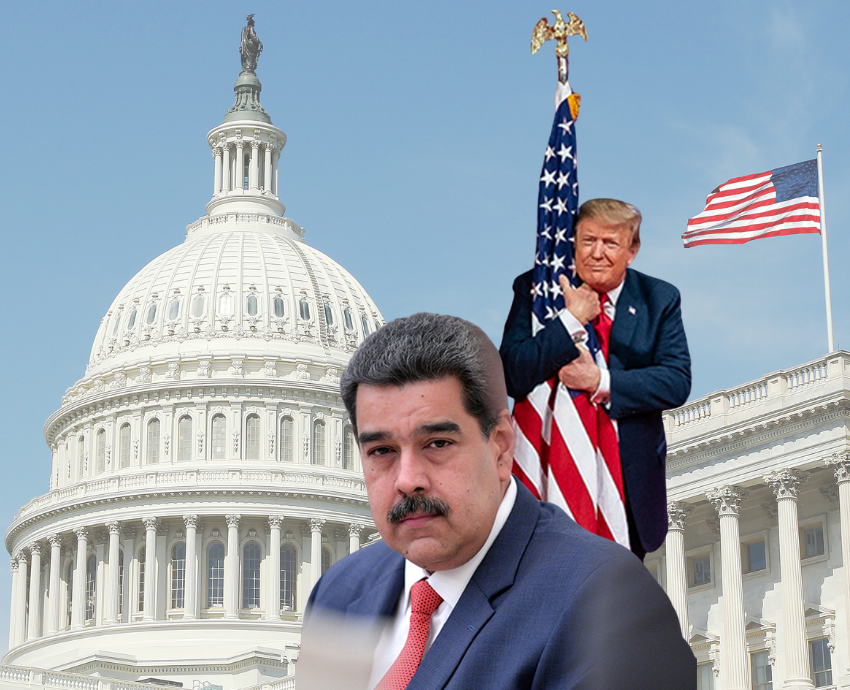
Speculation of more privatisations by the Nicolás Maduro government is growing amid fears incoming United States president Donald Trump may tighten sanctions on Venezuela.
The moves come as Maduro seeks to further consolidate support from Venezuelan capitalists for his disputed presidency.
Colombian president Gustavo Petro first raised alarm over plans to privatise Venezuelan state fertiliser company Monómeros in November.
Based in Colombia, Monómeros is the second-largest Venezuelan state asset abroad, providing critical support for farmers in both countries.
In 2019, far right Colombian president Iván Duque handed the company to self-proclaimed Venezuelan “interim president” Juan Guaidó. With Petro’s election in 2022, Monómeros was returned to the Venezuelan state.
The company currently operates under sanctions waivers issued by the US Treasury Department. But fears Trump could remove these waivers seem to be driving Venezuela’s intentions to sell the company.
What is unclear is why the plan appears to be to sell it to Nitrofert, the Colombian subsidiary of US-based transnational Nitron Group. Nitrofert was set up with the help of Duque and far-right Venezuelan opposition leader Leopoldo López in 2021.
Petro warned the “sale of Monómeros will lead to higher prices for primary agricultural products in our countries” and “force our farmers to depend on foreign products and the price of agricultural inputs on the international market”.
“There is no doubt that this decision could condemn millions of people who represent the basis of food sovereignty in our region to poverty and hunger.”
Venezuelan Confederation of Industries president Luigi Pisella has also said Maduro plans to fully or partially privatise “between 500 and 600 companies”.
According to Pisella, the government told Conindustria of its intention to privatise or run them in “an alliance as mixed companies” with contracts similar to those signed with US oil multinational Chevron, where “Chevron manages everything”.
The Maduro government has so far remained tight-lipped on these plans. But they are in line with policies pursued during the past decade amid sanctions, economic crisis and declining popular support.
Sanctions on government officials started under US President Barack Obama in 2015, but were greatly expanded by Trump to target the state oil company, PDVSA, and the Central Bank of Venezuela.
These sanctions — illegal under international law — have sought to cripple Venezuela’s oil industry, block its access to international financial markets and scare off potential investors under threat of financial punishment.
They have also contributed to Maduro’s declining support, already evidenced by the government’s loss in the 2015 National Assembly elections.
Revolutionary activist and sociologist Reinaldo Iturriza told Green Left in 2020 that this period between 2015–19 was no doubt “a point of inflection in the Bolivarian process” — referring to the process of pro-poor, radical democratic transformation under former president Hugo Chávez.
Back then, “mismanagement of certain public companies and corruption, along with deliberate disinvestment and a profound lack of confidence in the organised people … contributed to positioning the idea that it was indispensable to establish ‘strategic alliances’ with sections of the capitalist class in order to get out of the quagmire”.
Also speaking to GL in 2021, Venezuelan leftist Antonio González Plessmann added that “when the blockade obliged the government to adopt emergency measures, the governing elite had little problems in embracing economic measures commonly associated with neoliberal adjustment programs and promoting the role of business to confront the crisis”.
This was facilitated by the fact that for the past decade, “corruption and the discretionary use of public resources to benefit certain economic sectors has generated a network of (legal and illegal) economic interests that have consolidated themselves and worked to undermine the anti-capitalist component of the Bolivarian Revolution”.
For Plessmann, this shift towards reliance on Venezuelan capitalists involved “a transformation in what [Chávez stood] for”, as “it reduces the role of the people, who were previously the protagonists of the Bolivarian Revolution, and represents an abdication in the face of capital.”